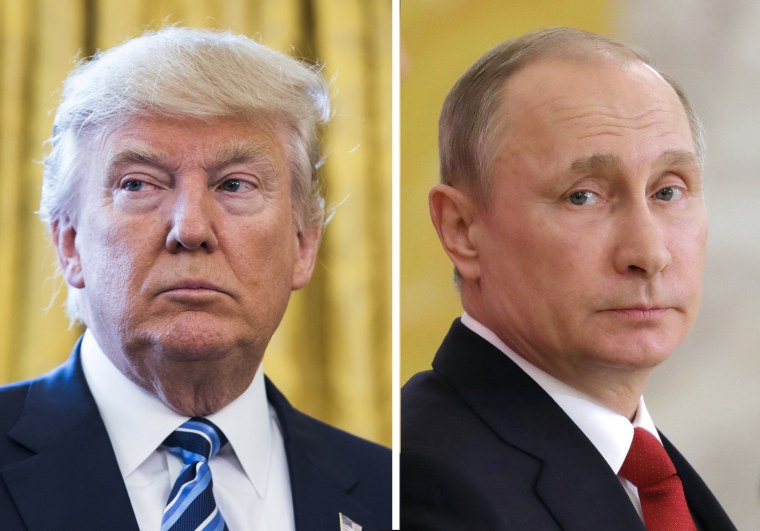After Congress approved new economic sanctions against Russia, Donald Trump grudgingly signed the bill into law, but not before blaming lawmakers -- including members of his own party -- for undermining the U.S. relationship with the Putin government.
But the story took a strange turn recently when the public learned that the sanctions still haven't been implemented, despite the deadline included in the law. On "Meet the Press" yesterday, NBC's Chuck Todd sought an explanation from Sen. Lindsey Graham (R-S.C.), a proponent of the sanctions.
TODD: [Y]ou've come on this show numerous times and said, "Russia needs to be punished." You passed a tough sanctions bill. You passed it in July. The president signed it in early August. There was a deadline of October 1st. It is not October 1st. It is October 20th and the sanctions have not been implemented. Why?GRAHAM: I think that the Trump administration is slow when it comes to Russia. They have a blind spot on Russia I still can't figure out.
Really? You still can't figure it out? It's just a total mystery as to why this president might have a "blind spot" when it comes to the foreign adversary that launched an espionage operation that helped put Donald Trump in power?
Is it really that difficult to wager a guess?
For his part, the president isn't done trying to downplay the significance of the scandal. On Saturday, for example, Trump took aim at the dossier put together by Christopher Steele, a former British intelligence operative, insisting it's been "discredited." In reality, as Rachel has noted on the show, the document has stood up pretty well to scrutiny.
Soon after, Trump suggested that Moscow's investment in campaign-related ads on Facebook was "tiny," adding, "What about the billions of dollars of Fake News on CNN, ABC, NBC & CBS?"
Let's be clear about the point of this message: a foreign adversary launched a propaganda campaign in the United States as part of an attack against our election. The American president -- the beneficiary of the attack -- is now defending the foreign adversary, downplaying the scale of its social-media investment, and equating Russian propaganda with news from independent American journalists.
That's one heck of a blind spot.
